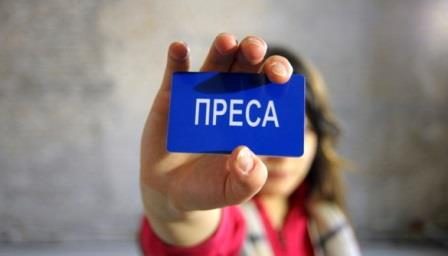The legal hotline for journalists and mass media receives questions not only of a local but also of a general nature. Many media professionals are interested in the nuances of state legal guarantees of journalistic activity.
We publish the experts’ responses to those of interest to many media people.
Lawyer Danil Serbin, IBC Legal Services, answers the questions.
Many investigations into crimes against journalists are conducted too slowly. Are there legislative mechanisms for speeding up and increasing the effectiveness of such investigations?
One of the key prerequisites for freedom of the press is the guarantee of safe journalistic activities provided and, most importantly, ensured by the state. Such a security must be effective, adequate, and effective, and journalists must feel protected. Media workers and journalism, in general, have all the opportunities for progress, improvement, and effective fulfillment of their main vocation – providing the population with objective, unbiased information. Such a result can be achieved primarily due to the legislative establishment of the relevant legal norms and the creation of a system (bodies, institutions) that will ensure the implementation of such guarantees and be able to prosecute for their violation.

The legal principles of guaranteeing the professional activity of a journalist and the social protection of a journalist are regulated by the Law On State Support of Media, Guarantees of Professional Activity, and Social Protection of Journalists.
But what do we really have?
Ukraine, according to the press freedom index – an annual ranking of countries compiled by the international non-governmental organization Reporters Without Borders, which is formed on the basis of assessments of press freedom in 180 countries (statistics of attacks on journalists and mass media, arrests, censorship, pressure on the press are taken into account), has been in the middle of the list in recent years.
According to open sources, since the beginning of 2021, IMI recorded 197 cases of violations of freedom of speech, 99 cases of obstruction, 24 beatings, 18 cases of restricted access, 16 cases of cybercrimes, 13 threats, and eight cases of censorship. Meanwhile, the number of cases brought to a court decision is slightly more than 10% of recorded cases of violations against journalists and their legitimate professional activities. IMI specialists point out that, in addition to subjective reasons that affect the general situation (inappropriate professional level of law enforcement officers, corruption, etc.), there are also objective reasons that complicate the investigation of offenses against journalists. In particular, the absence in the legislation of Ukraine of the possibility to respond to certain violations.
What legislative acts regulate criminal liability for illegal actions committed against journalists?
Criminal responsibility for illegal actions committed against a special victim – a journalist, is provided for by a number of articles of the Penal Code of Ukraine, in particular:
- Article 163, which provides for liability for breach of confidentiality of correspondence, telephone conversations, telegraphic or other correspondence transmitted by means of communication or through a computer;
- Article 171, which provides for liability for obstructing the legitimate professional activity of journalists;
- Article 345-1, which provides for liability for threats or violence against a journalist;
- Article 347-1, which provides for responsibility for intentional destruction or damage to the journalist’s property;
- Article 348-1, which provides for liability for encroachment on a journalist’s life;
- Article 349-1, which provides for responsibility for taking a journalist as a hostage.
Thus, only six articles are enshrined in the penal code of Ukraine, which provide for responsibility for criminal offenses against journalists, unable to properly regulate the situation with encroachments and illegal actions against journalists.
Why not always apply the norms of laws regarding the prosecution of those guilty of crimes against journalists?
There may be several reasons for this:
Banally, the penal code does not provide for liability for certain types of offenses that are inherently socially dangerous and are committed against journalists;
Procedural aspects of investigation and prosecution of persons suspected of committing criminal offenses against journalists take a lot of time and do not allow effective responses to illegal actions against journalists, for example, intimidation, termination of journalistic investigations, etc. The criminal procedural legislation does not meet today’s challenges in terms of quick response and prosecution within a reasonable time frame for committing offenses against journalists;
Law enforcers quite often, by their actions, prevent the realization of the right of journalists to protect and bring to justice those who have committed offenses that correspond to the composition of the offense provided for by the special norms of the penal code of Ukraine, in terms of offenses against journalists and journalistic activity. Instead, law enforcement agencies open proceedings under other articles of the penal code, which are general in their relation to articles providing for criminal liability for offenses against journalists. Thus, law enforcement officers relieve themselves of the burden of the need to collect evidence, investigate, etc. The consequence of this is that the fair and criminal law responsibility for offenses against journalists is borne by a few guilty parties. In contrast, the actual offenses against journalists are hundreds.
Another aspect of the legal protection of journalists, in our opinion, is the need to establish, in addition to criminal, administrative, and civil liability for illegal actions against journalists.
What liability, other than criminal, can be applied to a person who has committed an offense against a journalist?
A social necessity is legally established administrative responsibility for those offenses against journalists, which cannot be recognized as criminal offenses due to the degree of their public danger. Adequate protection of journalists and journalistic activity is, in fact, a necessity in every civil society and every rule of law. Administrative responsibility is a necessary type of responsibility for committing offenses against journalists.
It is also important to legislate civil liability for offenses against property and non-property rights of journalists. We believe that special tort liability should be provided for offenses against personal non-property rights of journalists – such as honor, dignity, reputation, right to information, etc.
Civil legislation provides for various special torts, but not a single article deals with liability for damage (both financial and non-financial) caused to a journalist during his professional activities. In our opinion, the consolidation of civil liability by introducing special torts into the Civil Code of Ukraine, which provide for liability for damage caused to journalists, is the element that is significantly lacking to ensure the protection of journalist’s rights and establish the appropriate level of guarantees of journalist’s safe activity.
And yet. There are certain developments in this area. However, for a truly high-quality and effective reform of the legal system in terms of the protection of journalists’ activities, it would be necessary to carry out an analysis of the legal field to borrow foreign experience. After all, the purpose of this is to create proper conditions in which journalistic activity can reach a significantly new level. Journalists will perform their functions without being afraid of oppression and threats from third parties and knowing that the law provides for effective procedures for responding to and bringing to justice for illegal actions.
Reference information:
The legal hotline for journalists and media works under the auspices of the network of Journalist Journalists’ Solidarity Centers (JSC) of the NUJU with the support of UNESCO and the International and European Federations of Journalists. As part of the program, media workers can get the necessary legal support. Consultations are provided by highly qualified specialists of the legal company IBC Legal Services – lawyers, lawyers with extensive expertise who are not only high-class specialists but also pleasant people who sincerely support their business in general and each client in particular. The managing partner of the company is Mykhailo Kocherov, a Doctor of Law/lawyer.
For media workers, the service is free and available from any region or country where media workers are located. You can apply by filling out a special FORM. It is necessary to indicate contact data, the name of the mass media in which the media person works, the region of residence, briefly outline the content of the appeal, and provide information that will help lawyers understand the essence of the issue and provide assistance.
ABOUT NUJU
The National Union of Journalists of Ukraine (NUJU) is the largest journalistic organization in Ukraine, uniting 18,000 members, and has regional organizations in each region. With the beginning of russia’s full-scale war against Ukraine, the NUJU directed its actions to help Ukrainian journalists. In particular, Ukrainian media workers can receive protective equipment for work in the combat zone, as well as financial and psychological assistance.
ABOUT IBC Legal Services
IBC Legal Services is a company with many years of experience and a strong team of professionals: lawyers, advocates, auditors, accountants, appraisers, and forensic and economic experts. Wide specialization and long-term partnerships with specialists in various industries and directions allow the company to provide comprehensive support to clients in any difficult situation.
ABOUT JSC NETWORK
The Journalists’ Solidarity Centers is an initiative of the NUJU implemented with the support of the International and European Federations of Journalists and UNESCO. The initiative is designated to help media representatives working in Ukraine during the war. The Centers operate in Kyiv, Lviv, Ivano-Frankivsk, Chernivtsi, Zaporizhzhia, and Dnipro and provide journalists with organizational, technical, legal, psychological, and other types of assistance.
ABOUT UNESCO
UNESCO is the United Nations Educational, Scientific, and Cultural Organization. It contributes to peace and security by promoting international cooperation in education, sciences, culture, communication, and information. UNESCO promotes knowledge sharing and the free flow of ideas to accelerate mutual understanding. It is the coordinator of the UN Action Plan on the Safety of Journalists and the Issue of Impunity, which aims to create a free and safe environment for journalists and media workers, thus strengthening peace, democracy, and sustainable development worldwide. UNESCO is working closely with its partner organizations in Ukraine to provide support to journalists on the ground.
The designations employed and the presentation of material throughout this digest do not imply the expression of any opinion whatsoever on the part of UNESCO concerning the legal status of any country, territory, city, or area or its authorities or concerning the delimitation of its frontiers or boundaries.
The authors are responsible for the choice and the presentation of the facts contained in this digest and for the opinions expressed therein, which are not necessarily those of UNESCO and do not commit to the organization.

 THE NATIONAL UNION OF
JOURNALISTS OF UKRAINE
THE NATIONAL UNION OF
JOURNALISTS OF UKRAINE
















Discussion about this post